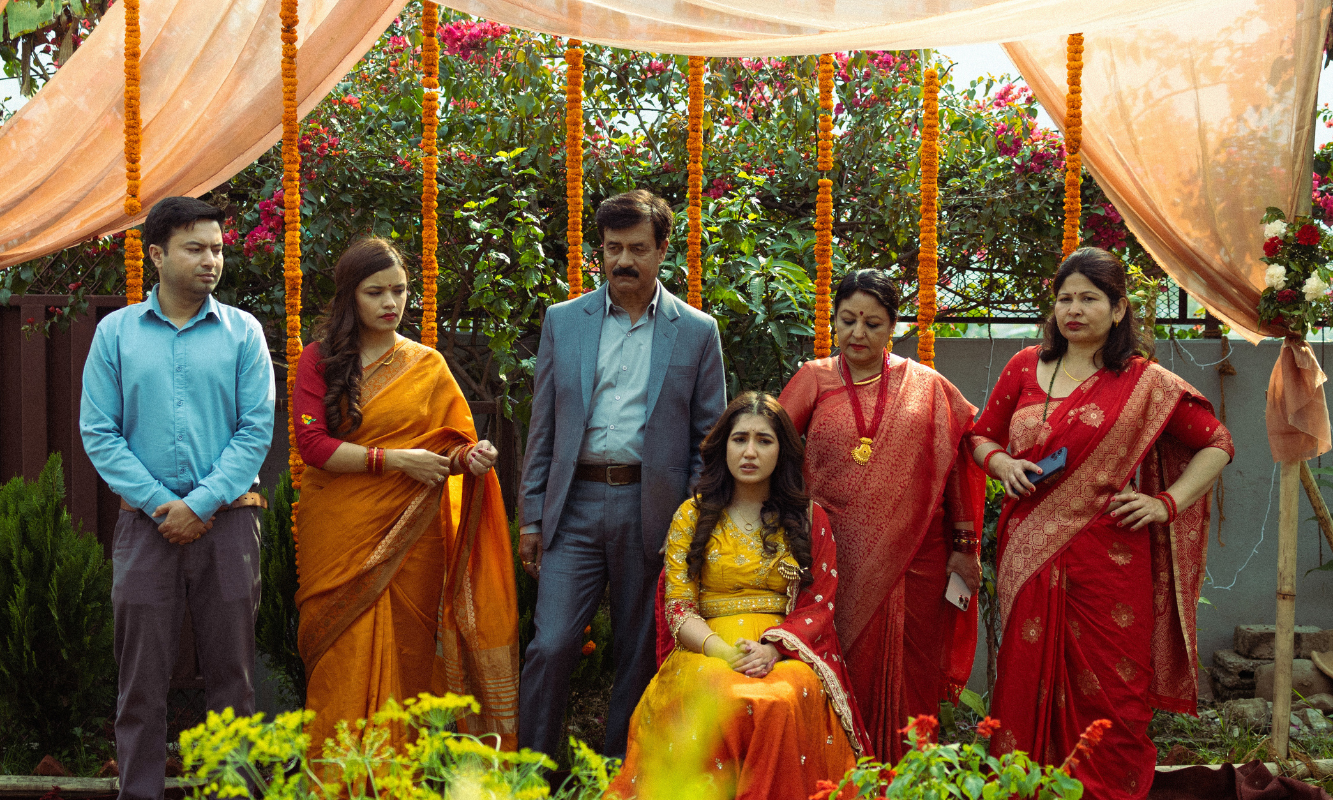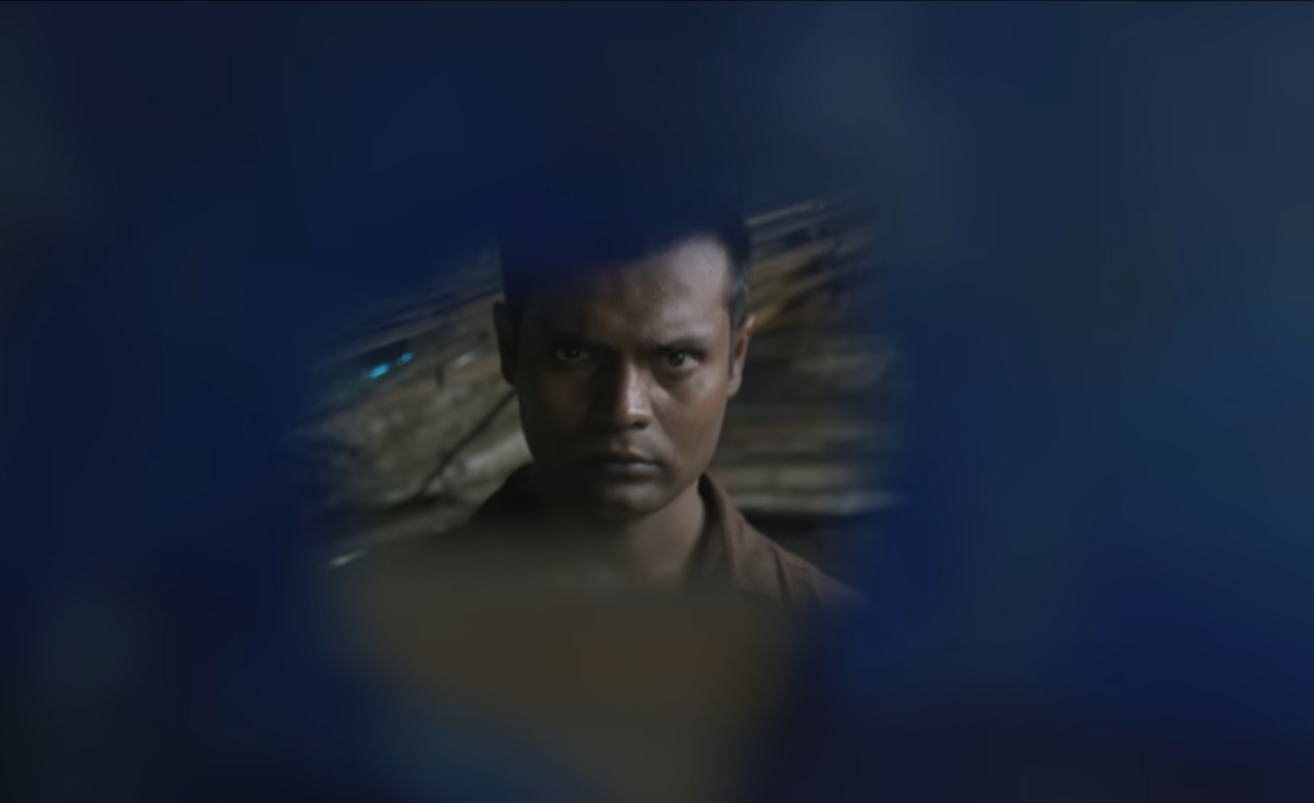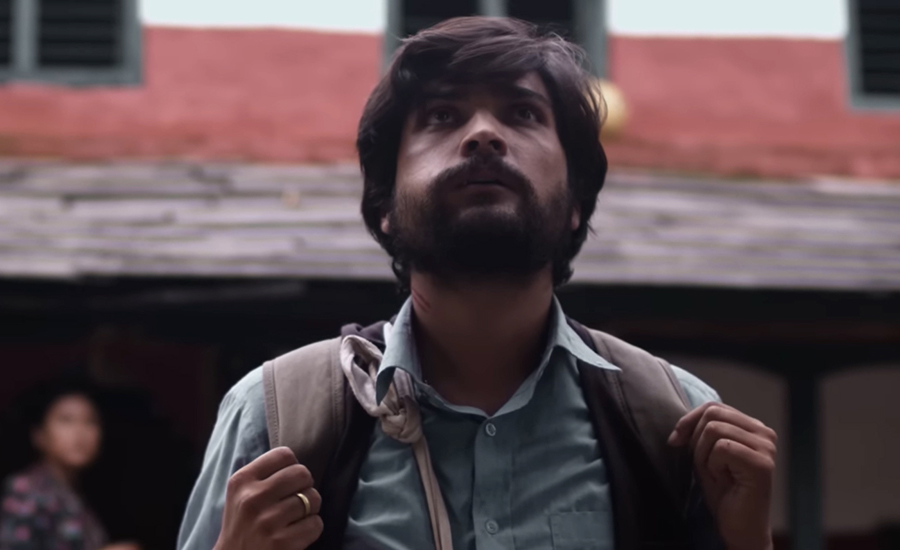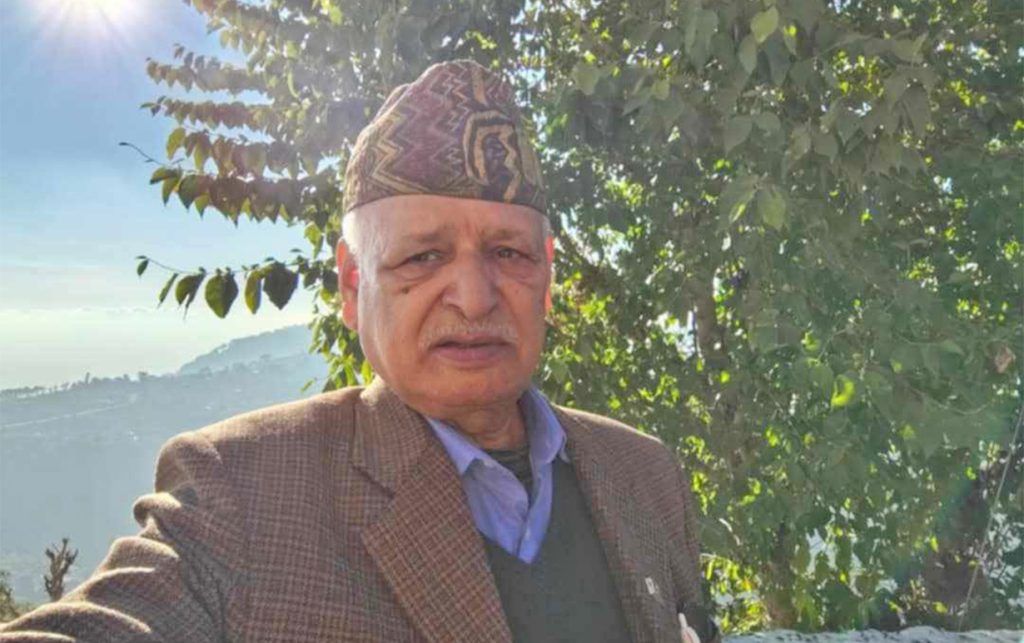
An ‘item dance’ by Bollywood star Sunny Leone is not the only thing that you should look for in this week’s release Password. This movie has an interesting story that unfolds a crime taking place outside Nepal. Further, it is completely shot in posh locations in London and gives a lot of screen to time foreign faces. Hence, this action thriller offers the audience a different taste from what they usually get in Nepali cinema, most of which can be classified either as a love story or a comedy. However, thanks to mediocre cinematography, the movie is unlikely to stand out.
Interesting plot
The movie opens with a TV reporter saying that Nepal police have failed to nab a man accused of, not only killing his own father, but also and stealing the prized Lord Shiva statue from Pashupatinath. Immediately after that, reporters gather around a police officer who leads the investigation department of Nepal Police. Under pressure from the public and the media, the police officer commissions a three-member team, comprising notoriously incompetent officers, to nab the suspect who is believed to be in London.
In the beginning, the audience is given three key questions to follow during the movie: first, why did the suspect kill his father ?; second, is the murder related to the burglary?; and third, why did the department chief employ ‘incompetent’ officers for the mission?
Mostly, the movie is successful in keeping the answer-hungry audience hooked as the conflict rages. You are introduced with new characters and their pursuits. In the process, the movie frequently confuses you, but clarifies again; this regular switching serves as a good way of keeping the viewers engaged.
When you learn about the animosity between the ‘most-wanted’ suspect, Bikki (Bikram Joshi) and another Nepali criminal in London, Jojo (Anoop Bikram Shahi), your interest in the movie piques. You get confused about who is the hero and who is the villain. Throughout the first half, it looks as if both are villains. Then, you also wonder who the hero is.

The triangular love story involving Bikki and two Nepali women he meets in London is another part of the story. But, it is really formulaic here–and it is based on mere chances than logical possibilities.
Average acting
The two key men of the movie–Bikki and Jojo–receive applauds from the audience for their realistic acting. However, the director fails to train his women well. Perhaps it was a wrong decision on the director’s part to assign an experienced Chhultim Gurung to play a supporting role and give space to the debutante Pari Rana as the lead. Whereas Gurung does justice to her role, Rana not only looks naive, but is also confused most of the time. Another lady of the movie, Lisa Sunar is okay–after all, faking things is not a problem in her role because she is required to act phoney.
Now to the supporting cast. Buddhi Tamang and Rabindra Thapa, expectedly, fit in to add comic elements to the project. Towards the end, the director gives them relatively serious jobs; and they do justice to it. This shows that if required, the duo can also do different roles.
Prabin Khatiwada plays his role well, but he is more present in his dialogues than in his acting. Bikram Basnet does not make any impression. Likewise, yesteryears’ established face Dhiren Shakya looks bold in his appearance, but his dialogue delivery lacks substance. If Shakya is looking for a comeback, Password will not help his cause.
Shortcomings
The pitfalls are not only limited to acting but extend to the way in which the movie is presented. For example, the director sandwiches key flashback scenes between conversations. He pays little attention, if any, to the significance of flashbacks in the movie. They are given shorter slots without good connectors. It is more apparent in the second half. More artlessly, at once, you hear that the investigation mission’s leader pronounces the same sentence before and after a flashback scene.

While the movie unfolds most components of the mystery, it misses many. Who is the injured man who told the heroine, Sanju (Rana) that Bikki is innocent? If Bikki was innocent, why didn’t he stay in Nepal and tell the truth to the investigators? What is the connection between the fight that happens while the initial credits are shown and the main plot? Finally, what does the end suggest? What is the next mission that the investigation leader and his lady staffer talk about? It is suggested that the police officers, except one, do not return to Nepal, but why the movie does not tell it clearly?
Cheaply enough, like many other Nepali movies of late, Password also uses sex as an easy way to seek attention. Making the lady police staffer disguise herself as a sex worker to connect to Nepalis in London is logical in no way. Of course, London has a few red-light districts, but Nepali workers rarely frequent them. Instead of making her a fake prostitute, the writer and the director could have made her a restaurant waiter, who could access even a bigger Nepali population to broaden the scope of her investigation.
Portraying Nepal Police as a group of corrupt officials who work in cahoots with criminals is stereotypical. After all, if the story had picked some external character to facilitate the exit of the smugglers, that would not have made any difference in the overall effects of the story. In other words, the movie could have been equally interesting if the DIG had been projected as an honest police officer.
https://www.youtube.com/watch?v=YhLZUCtn7Ls
Verdict
For a section of the audience, Password already has a big turn-on with Sunny Leone’s dance. But, the movie is also bearable for people who do not know anything about this item lady. Nonetheless, Password does not help the Nepali cinema industry unlock its next phase.
—
Password
Genre: Action
Runtime: 125 minutes
Director: Samrat Basnet
Screenwriters: Mahesh Dawadi and Samrat Basnet
Cast: Anoop Bikram Shahi, Bikram Joshi, Buddhi Tamang, Rabindra Jha, Prabin Khatioda, Dhiren Shakya, Pari Rana, Bikrant Basnet, Lisa Sunar, Chhultim Gurung
2.5/5


























